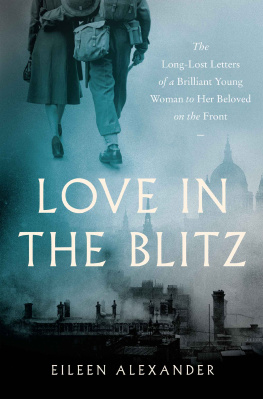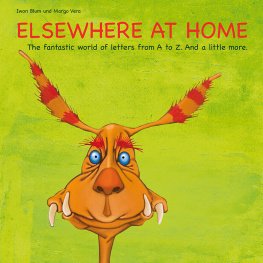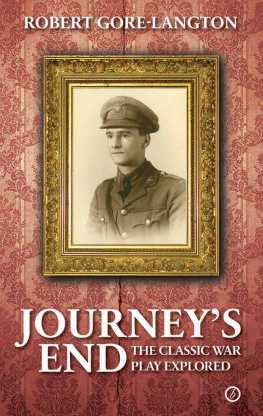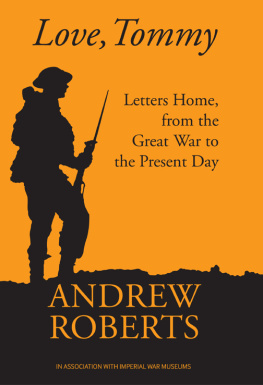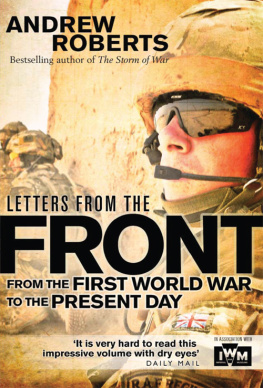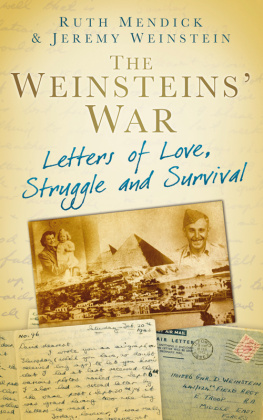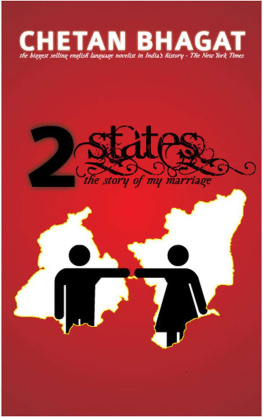
PRAISE FOR
We Are Going to Be Lucky
At the heart of this fascinating and educational tale about a soldier and his wife during wartime is a wonderful love story. Lenny and Diana become relatable almost immediately. Their excitement at their experiencesthe eagerness with which they anticipate their few reunions, the battles he is in, the pregnancy and birth of their daughterdraws readers in and allows them to live through the era as ordinary people experienced it day in and day out.
Richard Aquila, author of Home Front Soldier: The Story of a
GI and His Italian American Family During World War II
This is a truly remarkable story, contextualized just enough by the editor to provide the reader with a sufficient understanding of the history of the times without taking away the daily realities of a young couple making their way through letters and the occasional souvenir, till their final reunion. It pulls you in in such a way that you will not want to put the book down until the finish.
Melissa Suzanne Fisher, author of Wall Street Women
The correspondence of Lenny and Diana is a compelling account of the war though the eyes of an American soldier in Europe and his wife who stayed in the United States. The drama centers on the birth of their first child in America and Lennys increasingly dangerous war. Lenny was to go on to become an eminent scholar of John Milton, and these letters show the young scholar at work, struggling to obtain research materials while recovering from serious injuries sustained at the Battle of the Bulge.
Gordon Campbell, University of Leicester
Is there any genre of writing more immediate and soul-bearing than the love letter? In We Are Going to Be Lucky , Elizabeth L. Fox allows us inside the lives of one New York couple as they endure the challenges of living apart through World War IILenny from the battlefront and Diana at home in Brooklyn. From arduous training to the difficulties of factory work, from the hopefulness of pregnancy to a near-fatal injury and painful convalescence, this carefully edited collection of correspondence reveals the pain, sacrifice, and everyday strugglesand magnanimityof the Greatest Generation, and the universal beauty of human connection.
Julie Scelfo, author of The Women Who Made New York
This remarkable collection of letters gives us a unique glimpse into the experiences of a World War II soldier and his wife on the home front. The correspondences between Lenny and Diana are both relatable and fascinatingfull of funny anecdotes, powerful impressions of combat, profound insights into human nature, and a shared hope for a better world. Elizabeth L. Fox, the daughter of the letter writers, has edited this collection beautifully, vividly bringing to life a deeply personal love story within the dramatic context of a world war. From page one, we find ourselves rooting for this couplefor their commitment to fighting for justice, for their daily triumphs and struggles as soldiers and parents, and, ultimately, for them to be lucky enough to hold each other again in a time of peace.
Andrew Carroll, editor of War Letters:
Extraordinary Correspondence from American Wars
We Are Going to Be Lucky
WE ARE GOING TO BE LUCKY
A World War II Love Story in Letters
EDITED AND ANNOTATED BY
Elizabeth L. Fox
Published by
State University of New York Press, Albany
2018 State University of New York
All rights reserved
Printed in the United States of America
No part of this book may be used or reproduced in any manner whatsoever without written permission. No part of this book may be stored in a retrieval system or transmitted in any form or by any means including electronic, electrostatic, magnetic tape, mechanical, photocopying, recording, or otherwise without the prior permission in writing of the publisher.
EXCELSIOR EDITIONS
is an imprint of
STATE UNIVERSITY OF NEW YORK PRESS
For information, contact
State University of New York Press, Albany, NY
www.sunypress.edu
Library of Congress Cataloging-in-Publication Data
Names: Miller, Leo, 19151990, author. | Miller, Diana F., author. | Fox, Elizabeth L., 1944 editor.
Title: We are going to be lucky : a World War II love story in letters / edited by Elizabeth L. Fox.
Description: Albany : State University of New York Press, 2018. | Series: Excelsior editions | Includes bibliographical references and index.
Identifiers: LCCN 2017040336| ISBN 9781438470580 (paperback : alk. paper) | ISBN 9781438470597 (e-book)
Subjects: LCSH: Miller, Leo, 19151990Correspondence. | World War, 19391945Personal narratives, American. | World War, 19391945CampaignsWestern Front. | SoldiersUnited StatesCorrespondence. | Married peopleUnited StatesCorrespondence. | Love-lettersUnited States. | Miller, Diana F.Correspondence.
Classification: LCC D811 .M517 2018 | DDC 940.54/1273092dc23
LC record available at https://lccn.loc.gov/2017040336
10 9 8 7 6 5 4 3 2 1
This book is dedicated to my parents,
Lenny and Diana Miller,
who possessed the insight to write meaningfully, the devotion to communicate frequently, and the wisdom to preserve their correspondence. May their legacy live on, through their grandchildren and future generations, and may it resonate with those who seek justice for all people.
Contents
Camp Upton, Long Island, New York, May 720, 1943
Camp Shelby, Mississippi, May 21November 20, 1943
Camp Shelby, Mississippi, November 21, 1943June 4, 1944
On the USS Wakefield , June 513, 1944
Camp Barton Stacey, England, June 13July 7, 1944
Betty Lou and the Breakout from Normandy,
July 9September 11, 1944
Mid-September through Mid-December, 1944
Ardennes, Belgium,
Mid-December, 1944, through January, 1945
January 25May 1, 1945
May 2, 1945June 15, 1946
Acknowledgments
I am most indebted to my parents, Leo (Lenny) and Diana Miller, who preserved their wartime letters and who taught me how to live by ones ideals and principles to make the world a better place.
This book wouldnt have been possible without the support and love of my husband and best friend, Sid, who believed in this project and supported me, allowing me to spend many hours reading and rereading the letters and sitting at the computer over the past five years. His understanding and knowledge of the history of World War II contributed greatly.
My daughter, Amy, an accomplished playwright and screenwriter, was my sounding board and supported me during all the trying times. Her professional knowledge taught me how to strengthen the manuscript. My son David sorted all the letters by date and inspired me to start reading them. With his passion for history and research, my son Jon motivated me to keep going.


